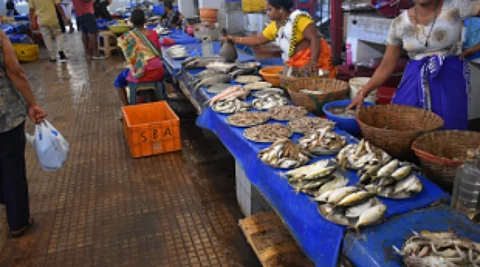

A parallel fish market has emerged in Model-Fatorda, causing significant inconvenience to local residents and raising serious concerns over public health, traffic congestion, and environmental damage.
The issue originates from the SGPDA’s wholesale fish market, where the imposition of an hourly parking tax for vehicles has driven many fish vendors to seek alternative unloading points.
To avoid the tax, several vendors have begun operating from rented plots in Model-Fatorda, parking their vehicles there and transferring fish to smaller vehicles for distribution. This has led to an influx of truck traffic into residential areas, causing traffic snarls on already narrow roads.
Residents complain that the trucks not only congest the area but also leak sewage and fish waste, creating an unbearable stench. Furthermore, because these sales occur outside the regulated fish market, the fish sold bypasses standard health and quality inspections, posing a potential risk to consumers.
The official wholesale fish market has its own unresolved issues. Despite the announcement of two to three inauguration dates, the newly constructed market building remains unopened.
The existing market lacks a proper sewage treatment facility, raising concerns about pollution in the nearby Sal River. The delay in opening the new facility, coupled with the lack of enforcement, has only exacerbated the problem.
Attempts by the municipal body to levy SOPO tax on vehicles unloading fish outside the market have proved ineffective, as vendors continue to find ways to operate tax-free in Model-Fatorda.
Alarmed by the worsening conditions, local resident Savio Dias has lodged a formal complaint with multiple authorities, including the Chief Officer of the Margao Municipal Council, the Health Department, the Food and Drug Administration, the Superintendent of Police for South Goa, and the District Collector.
Dias has called for a thorough investigation and immediate action to curb illegal operations and safeguard public health and safety.